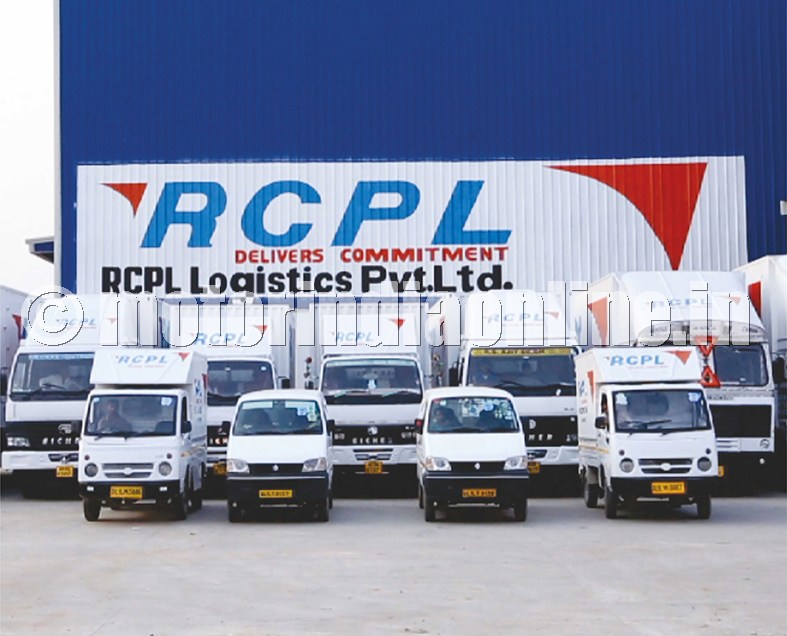Established in 1997, RCPL Logistics Pvt. Ltd. today owns a fleet of over 500 vehicles which includes trucks from Eicher, Ashok Leyland, Mahindra, Tata Motors and BharatBenz, along with some vehicles from Maruti. Over the last two decades, RCPL has emerged a preferred provider of logistics services for the automotive, FMCG, Textile, Apparel, Pharma, Electrical and Electronics segments, focusing and developing itself to become an industry stalwart in multi-modal express distribution services pan-India. With 62 self-owned branches serving more than 100 delivery locations across the country, RCPL boasts of having equal distinctive competence and expertise in all three modes of cargo transport namely, air, train and surface express.

In an exclusive talk with Mr. Vipin Gupta, Director, we got to know about RCPL’s aggressive expansion plans, its optimistic outlook on the post-GST era of Indian logistics and more.
FY17 performance
By restructuring and reinvestment of profits for our company growth in quality manpower and infrastructure, we achieved our targeted revenue in FY17, with a 17 per cent growth in turnover from last year. I am proud to share that RCPL bagged the CII SCALE Award for ‘Promising Logistics Service Provider’ and India Cargo Award for ‘Most Innovative Logistics Company’ during the year.
Plans and outlook for FY18
For the first couple of months of FY18 we had set low targets since we expected the business volume to reduce due to implementation of GST. But post GST implementation we hope business volumes will increase and we will able to maintain the growth rate of last year.
GST impact on Logistics sector
Different state forms will be eliminated so there is lesser probability of making mistakes, time taken for checking documents will reduce, resulting in lesser time wastage and faster turnaround time and better vehicle utilization. Diesel consumption will come down owing to lesser jams at check posts and drivers’ will again get attracted to logistics sector as it will reduce harassment, enabling them to reach their destinations faster. On a broader scale, the volumes in primary movement will increase.
Company’s GST-readiness
We have already started to get our firm GST-registered in all the states and union territories and have started talking to our customers across different verticals to understand the kind of impact their supply chain will have post GST so that we can plug in accordingly. For instance, we do not expect any significant change in the movement of auto components to OEMs which follow just-in-time model but component movement to distributors will have to be tweaked.
In addition to GST driving GDP growth, we expect it to drive more growth on road express services. There will be demand for faster speeds and higher volume movement by road. As a result, we may design a supply chain focusing on better effectiveness rather than focusing on the tax expedience. Most supply chains in India are designed for tax first, followed by supply chain efficiency. Post GST, companies might manage local regional distribution centers on their own rather than using custom and forwarding agents.
Technology adoption
We have already implemented GPS-tracking across 100 per cent of our fleet for real-time updation and control. Post GST, it will further help us to reduce the turnaround time after removal of check posts. We are also upgrading our fleet as per customer demand with safety measures such as airbags, buckets and cages. We are also providing access to our customers for real-time tracking and position of the vehicles.
Tackling driver shortage
Post GST, the demand for truck drivers will further increase since train movement might shift to road express service due to certainty in on-time delivery, wherein supply chain teams can plan more precisely.
Since we are already providing proper training and facilities to our drivers along with good perks, incentive schemes and other benefits such as life and health insurance for their entire family, and also with the quality and speed of road construction, we are confident of retaining our drivers. With GST in place, the time saved due to removal of check posts and lesser vehicle breakdowns will definitely open a new horizon for the driver community.
Factors that would drive logistics sector growth
* Due to price differential between air and road, post GST inventory can be managed more predictably by logistics managers, encouraging people to move more volume by road.
* GST will incentivize logistics companies and 3PL service providers to invest in scale, service focus and technology and align their service offering to the widely changing supply chain of their customers. This will also catalyze the much-needed consolidation of the sector.
* Due to the reduction in turnaround time, we will see huge cost savings, better rotation of money and increase in profits for transporters driven by enhanced vehicle productivity and rise in number of trips plied in a month.
